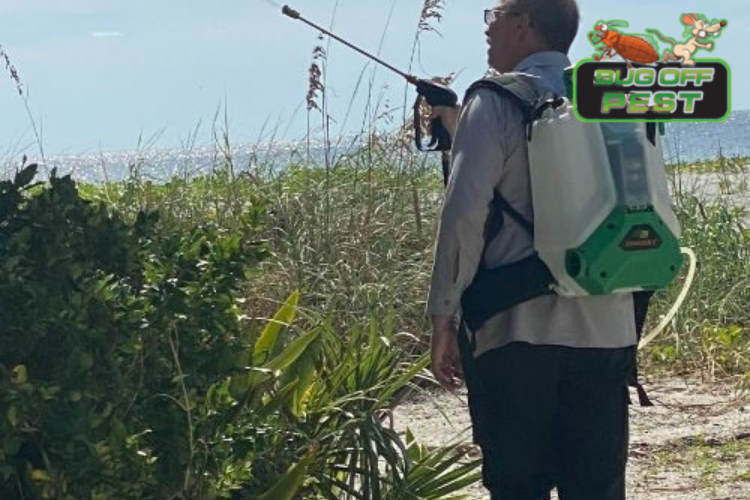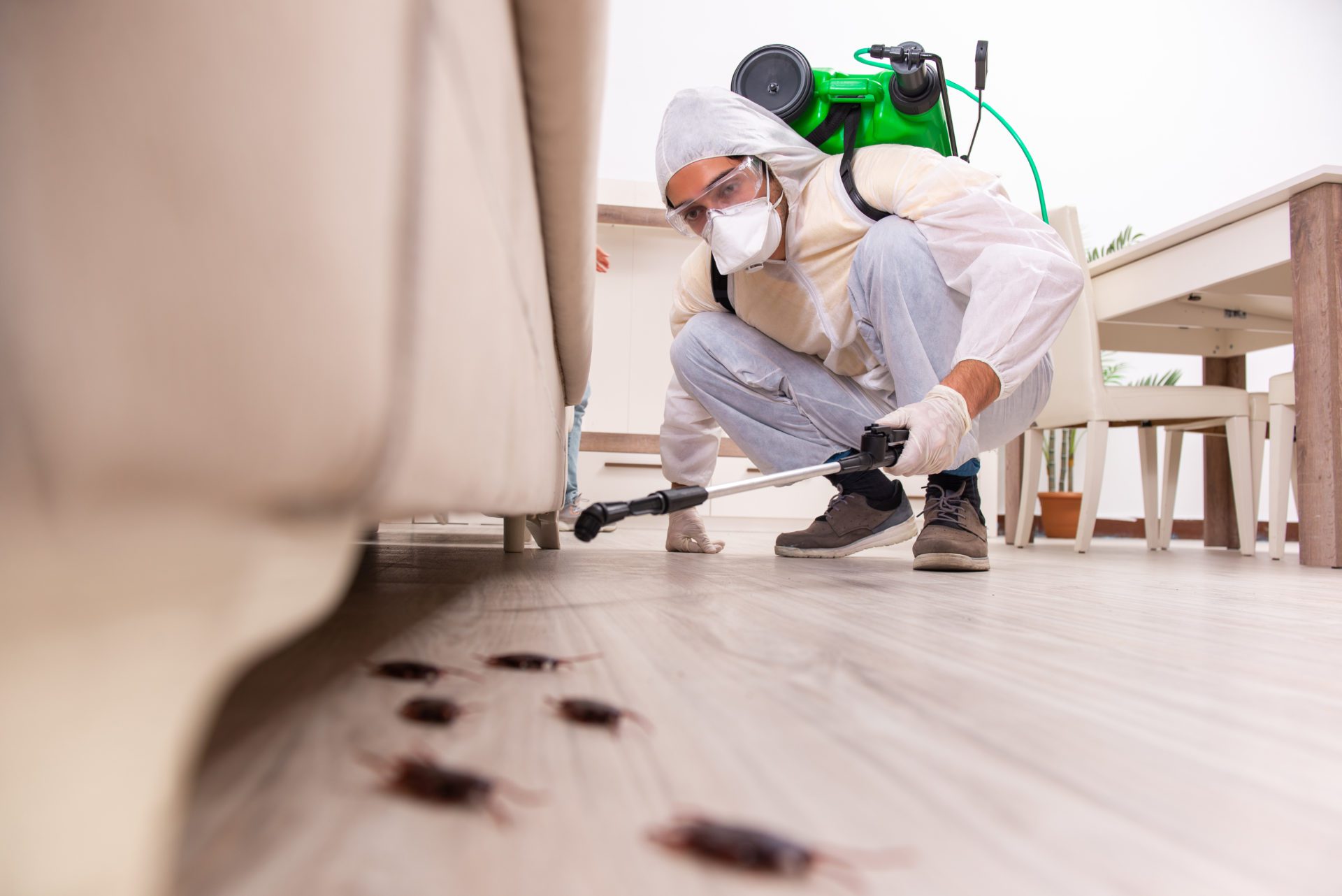Weekend Pest Control in Port Charlotte
Weekend Pest Control in Port Charlotte
Blog Article
Comprehensive Overview to Understanding Parasite Control Methods and Their Therapy
Comprehending insect control approaches is necessary for effective administration of unwanted organisms that position dangers to health, agriculture, and home. What variables should be thought about when choosing the ideal parasite control method for a specific situation?
Overview of Bug Control Approaches
Pest control methods incorporate a range of techniques designed to take care of and get rid of unwanted microorganisms that can hurt human health, agriculture, and residential or commercial property. Efficient bug monitoring is important for preserving the honesty of communities and making certain the safety of food materials. These approaches can be generally categorized right into three main methods: social, mechanical, and organic controls.

Social control involves customizing farming techniques or ecological problems to minimize bug facility and reproduction. Mechanical control depends on physical barriers or gadgets to stop parasite accessibility or directly remove them.
Biological control uses all-natural killers, bloodsuckers, or pathogens to control pest populations. This method highlights eco-friendly balance and can consist of introducing helpful insects, such as ladybugs or predacious nematodes, to handle pest presence.
Integrated insect management (IPM) integrates these methods, making use of an all natural approach that highlights avoidance, tracking, and accountable administration. By utilizing a blend of these techniques, parasite control can be extra lasting and reliable, reducing reliance on chemical interventions while protecting human health and the atmosphere.

Chemical Insect Control Solutions
A range of chemical parasite control remedies are readily available, offering efficient alternatives for taking care of parasite populaces when various other methods might drop short. These options largely consist of insecticides, herbicides, fungicides, and rodenticides, each created to target details bugs while minimizing injury to non-target microorganisms.
Insecticides are especially effective against a series of pests, consisting of ants, roaches, and termites, and can be identified as call or systemic representatives. Call insecticides eliminate pests on call, while systemic pesticides are absorbed by plants, making them toxic to bugs that feed upon them. Herbicides are utilized to manage undesirable vegetation, whereas fungicides are vital for managing fungal conditions that can harm crops and decorative plants.
Rodenticides, designed for rodent control, are readily available in various formulas, including baits and tracking powders. It is crucial to follow label directions diligently to guarantee security and effectiveness. Furthermore, integrated parasite administration (IPM) concepts should be utilized, integrating chemical options with social, mechanical, and biological techniques for lasting insect control. This all natural method not only enhances pest management performance but also minimizes potential ecological effects connected with chemical use.
Organic Parasite Control Strategies
Biological bug control methods use an ecologically friendly option to chemical techniques by using natural predators, parasites, or virus to take care of parasite populations. This technique leverages the environmental connections between microorganisms, promoting a well balanced ecological community while lessening chemical deposit in the atmosphere.
One of the most common organic control approaches involves the introduction of all-natural adversaries. Ladybugs are utilized to regulate aphid populaces, while parasitical wasps can target go caterpillars and other bugs. These all-natural predators properly minimize pest numbers without hurting helpful bugs.
Furthermore, microbial agents such as germs, fungi, and viruses are utilized to contaminate and kill details insects. Bacillus thuringiensis (Bt), a naturally taking place germs, is widely utilized to control caterpillars and various other larvae, showcasing the efficiency of microbial insect control.

Physical and Mechanical Techniques
Frequently utilized in incorporated insect administration techniques, physical and mechanical methods offer as effective devices for controlling parasite populations without the use of chemicals. These strategies depend on physical barriers, catches, and other mechanical gadgets to stop or eliminate bugs, making them eco-friendly options.
Physical techniques include using barriers such as insect netting, displays, or row covers that literally obstruct insects from accessing plants. This is specifically beneficial in farming settings where plant defense is crucial. Furthermore, environment control, such as getting rid of debris and standing water, can minimize parasite reproducing sites, consequently minimizing problems.
Mechanical techniques incorporate catches, which can be designed to record details pests. Sticky catches and pheromone catches prevail examples that tempt and preserve insects, facilitating tracking and control. Vacuuming is one more mechanical approach, efficient for removing bugs from indoor environments, especially in instances of invasions.
Preventative Parasite Management Approaches
Reliable preventative parasite monitoring approaches are essential for maintaining healthy and balanced atmospheres and reducing pest-related concerns prior to they arise (Pest Control in Port Charlotte, FL). These strategies concentrate on aggressive actions that lower the chance of bug problems by attending to the origin triggers

An additional vital technique involves appropriate landscaping practices (Pest Control in Port Charlotte, FL). Maintaining plant life trimmed and far from buildings can lower harborage locations for bugs. Carrying out incorporated pest management (IPM) techniques that consist of keeping track of pest populations and employing biological controls can promote a balanced environment that normally subdues pest check this numbers.
Education and learning and training for team and residents on identifying very early indicators of pest activity are likewise crucial elements of an efficient preventative program. By fostering an atmosphere of recognition and alertness, organizations and home owners can substantially boost their parasite administration efforts and guard their spaces versus future problems.
Conclusion
Using an Integrated Pest Administration (IPM) framework permits for the sustainable administration of pests while reducing ecological impact. Ultimately, a comprehensive understanding of these varied insect control methods is necessary for achieving successful end results in pest management efforts.
Report this page